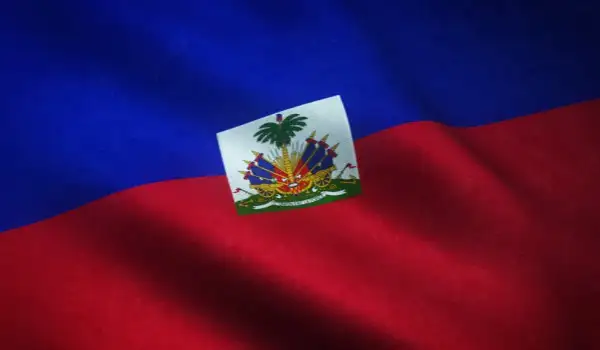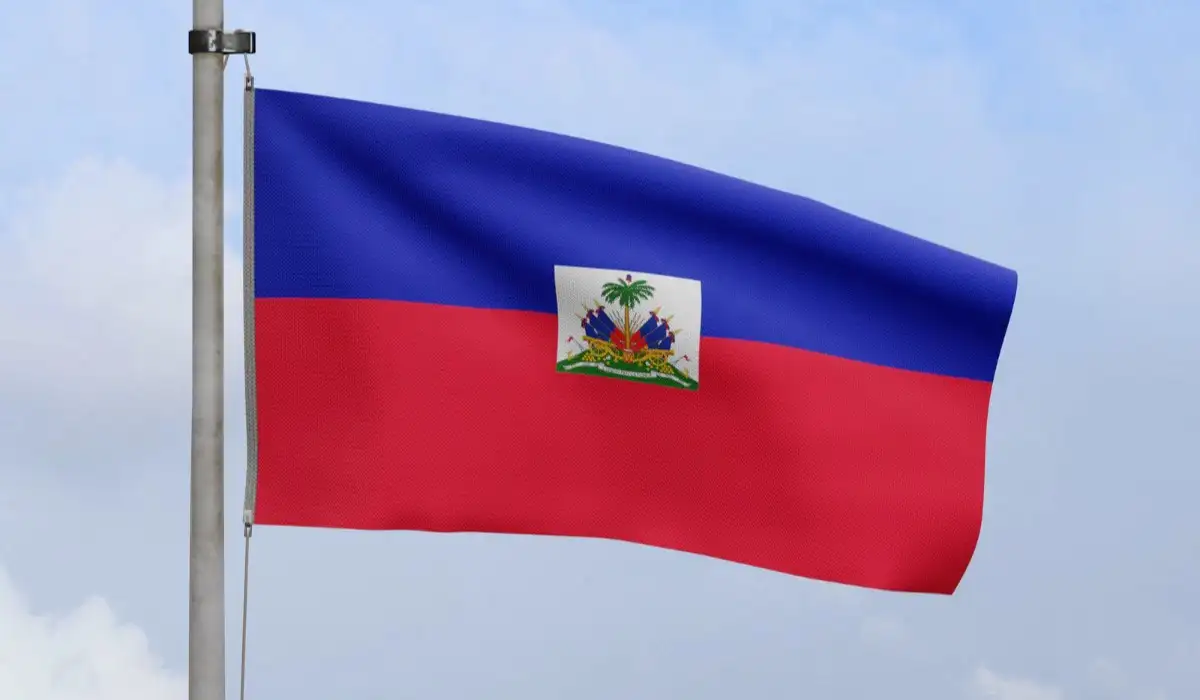Haiti's Independence Day is celebrated on the 1st of January, commemorating the nation's liberation from French colonial rule in 1804 - a significant event led by emancipated slaves. The rebellion, which was initiated in 1791 and surged for thirteen years, positioned Haiti as the first nation to outlaw slavery.
This notable milestone ushered in the dawn of the Republic of Haiti, marking it as the earliest independent territory in Latin America and the Caribbean. This historic event sparked a wave of liberation movements worldwide. Despite experiences of subsequent difficulties and periods of strife, the underlying significance of Haiti's independence remains profound today, symbolizing unwavering resilience, the essence of freedom, and a determined pursuit for self-governance.
Important Facts About Haiti Independence Day
Republic of Haiti

Haiti's Independence
Celebrated annually on January 1
Background
Haiti gained independence from France after a successful slave revolt led by Toussaint Louverture
Symbol
The Bicolour, a blue and red flag with the Haitian coat of arms in the white square at its center.

Area
10,714 sq. mi
Capital
Port-au-Prince
History of Haiti Independence Day
Haiti Independence Day is observed every year on January 1st. The day commemorates the nation's historic liberation from the shackles of French colonial rule. The journey to independence embarked in the early 19th century when Haiti was identified as Saint Domingue. It was a time when this French colony was esteemed as the wealthiest in the Americas.
The tide started to turn when the enslaved Africans on Saint Domingue were inspired by the philosophies of liberty, equality, and fraternity birthed from the French Revolution. Consequently, they decided to rise against their French oppressors. This insurrection sparked in August 1791. Eminent leaders like Toussaint L'Ouverture, Jean-Jacques Dessalines, and Henri Christophe all spearheaded this rebellion.
Even though L'Ouverture was apprehended by French forces and exiled to France where he eventually passed away, the crucial fight for independence pressed on. Under the determined leadership of Jean-Jacques Dessalines, the enslaved forces triumphed over the French at the Battle of Vertières on November 9, 1803. This significant victory signaled the end of French dominion in Haiti.
It was on January 1, 1804, Dessalines declared the independence of Haiti, formerly known as Saint Domingue. Haiti, translating to "land of high mountains" in the indigenous Taíno language, emerged as the world's first independent black republic, and the inaugural country to entirely eradicate slavery.
Haitians have since marked every January 1st with Independence Day celebrations, extending even to other countries with Haitian diaspora. The day is characterized by parades, oratory, and most notably, serving 'soup joumou', a traditional pumpkin soup symbolizing freedom.
This soup was specifically made for the French colonial masters, but the slaves were prohibited from consuming it. Upon gaining their independence, Haitians started preparing and relishing it as a powerful display of their newly found liberty.
In addition to the celebration, it's a day that prompts them to pay homage to their valiant heroes who laid down their lives for freedom. It also serves as a renewed pledge to safeguard their sovereignty and preserve their rich cultural legacy.
Haiti Independence Day Timeline
Discovery by Christopher Columbus
Christopher Columbus landed in Haiti while looking for a new route to India. He initially named it La Isla Española (The Spanish Island).
Treaty of Ryswick
Spain ceded the western third of Hispaniola (what is now Haiti) to France. It became a French Colony known as Saint-Domingue.
Beginning of African slave rebellion
African slaves started to revolt against French colonizers, led by Francois Makandal, against their harsh conditions.
Major Slave revolt
A major slave revolt in Saint-Domingue was sparked. This came to be known as the Haitian Revolution.
Constitutional rule by Toussaint L'Ouverture
Toussaint L’Ouverture, the leader of the revolt, took control of the whole island.
French attempted to regain control
Napoleon Bonaparte sent troops to regain control of the colony. Toussaint L'Ouverture was captured and sent to France where he died in prison.
Declaration of Independence
On 1 January, Jean-Jacques Dessalines, a former slave and one of Toussaint's generals, declared Haiti's independence. It became the first nation born from a slave revolt.
Traditions and Customs of Haiti Independence Day
Feasting on Soup Joumou
A significant custom during Haitian Independence Day involves preparing and consuming Soup Joumou. This traditional soup made from pumpkins symbolizes liberty and historically, was a dish slaves were not allowed to eat. Now, to commemorate their ancestor's fight for freedom, Haitians around the globe prepare this soup every 1st of January.
Public Processions and Carnivals
Public processions and carnivals featuring bright attire, traditional Haitian songs, dances, and crafts are a staple on Haiti's Independence Day. These energetic and vibrant events are held countrywide.
Te Deum Service
The Independence Day celebrations in Haiti traditionally commence with a Te Deum service in all churches, a Christian hymn sung as a token of joy and appreciation. Haiti's President typically participates in the service conducted in the cathedral situated in Port-au-Prince, the national capital.
National Speech by the President
On this memorable day, Haiti's President usually delivers an address to the people from the National Palace. The speech often reflects on the past and outlines aspirations for the nation's future.
Community Dinners
Haitian Independence Day emphasizes communal dining experiences, where meals are shared amongst family, friends, and neighbors. This acts to strengthen community connections and serve as a reminder of the unity and solidarity that led their forebears to freedom.
Fireworks Spectacle
The night before the Independence Day commences with a customary display of fireworks. These bright and visually stunning displays embody the perennial spirit and resilience of Haiti.
Ideas to Celebrate Haiti Independence Day
Traditional Haitian Dinner Party
Set up a meal featuring Haitian gastronomies such as the iconic soup joumou, which is a part of Haiti's independence narrative. Invite loved ones for a feast and a thoughtful exchange of Haiti's rich heritage and traditions.
Haitian Music Festival
Host a music fest highlighting Haitian traditional and modern tunes like Kompa and Rara. Encourage local musicians and communities to join and immerse themselves in the festive mood.
Charity Run for Haiti
Set up a charity run with the proceeds going towards a non-profit organization in Haiti. This event will not only promote a healthy lifestyle but demonstrate the spirit of solidarity towards Haitian communities.
Independence Day Film Night
Plan a movie night showcasing films that bring to life Haiti's vibrant heritage, culture, and struggle for freedom. This will not only entertain attendees but provide them with valuable insights into the significance of the day.
Haitian Cultural Fair
Organize a fair to celebrate Haiti's diverse culture with various food stalls, art showcases, dance performances, and lectures on the country's history.
Haiti History Night
Arrange a talk by a local historical expert to shed light on Haiti's path to independence. Attendees will gain a deeper understanding and appreciation of this nation's history.
Haiti Traditional Costumes Parade
Stage a parade featuring traditional Haitian fashion and masks which will infuse local communities with the vibrant spirit of Haiti's culture.
6 Interesting Facts About Haiti
First Independent Black Country
Haiti made history as the first black-led republic and the first independent nation within Latin America. It secured its independence in 1804 after a successful revolution, led by slaves, against their masters.
Home of the Citadelle Laferrière
Haiti houses the Citadelle Laferrière, one of the Americas' most expansive fortresses. Recognized globally as a World Heritage Site, this monumental structure traces its roots back to Henri Christophe, the first king of Haiti, who constructed it to safe-guard Haiti against potential French attacks after gaining independence.
Luxurious Palace Ruins
The Sans Souci Palace in Haiti, colloquially known as the 'Caribbean Versailles', has been recognised as a UNESCO World Heritage site since 1982, despite now being in ruins.
Cuisine Fusion
The assortment of flavours in Haitian food comes from a unique blend of Spanish, French, African, and indigenous Taíno influences.
Voodoo as Official Religion
In 2003, the Haitian government officially acknowledged Voodoo as a legitimate religious practice, reinforcing its long-standing position at the heart of Haitian culture and spirituality.
Historic Iron Market
In Haiti, you'll find the legendary Marché en Fer, or 'Iron Market'. Interestingly, its initial blueprints were intended for a railway station in Cairo, Egypt.
Haiti Independence Day FAQs
Next Haiti Independence Day Dates
| Year | Date | Day |
|---|---|---|
| 2023 | January 1st | Sunday |
| 2024 | January 1st | Monday |
| 2025 | January 1st | Wednesday |
| 2026 | January 1st | Thursday |
| 2027 | January 1st | Friday |
| What is the pattern? | Every January 1st | |
Haiti Independence Day Word Search
- Haiti
- Independence
- Revolution
- Democracy
- Abolishing
- French
